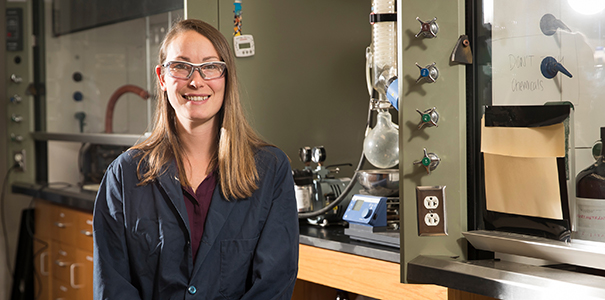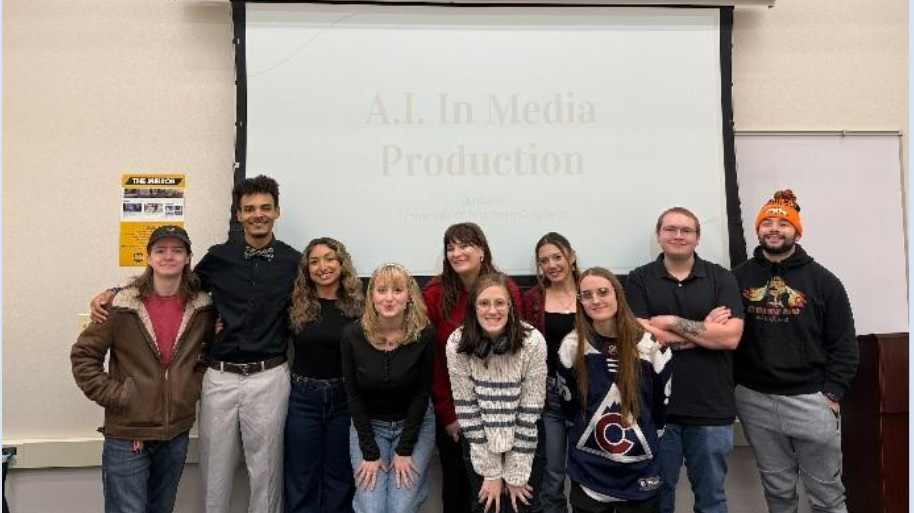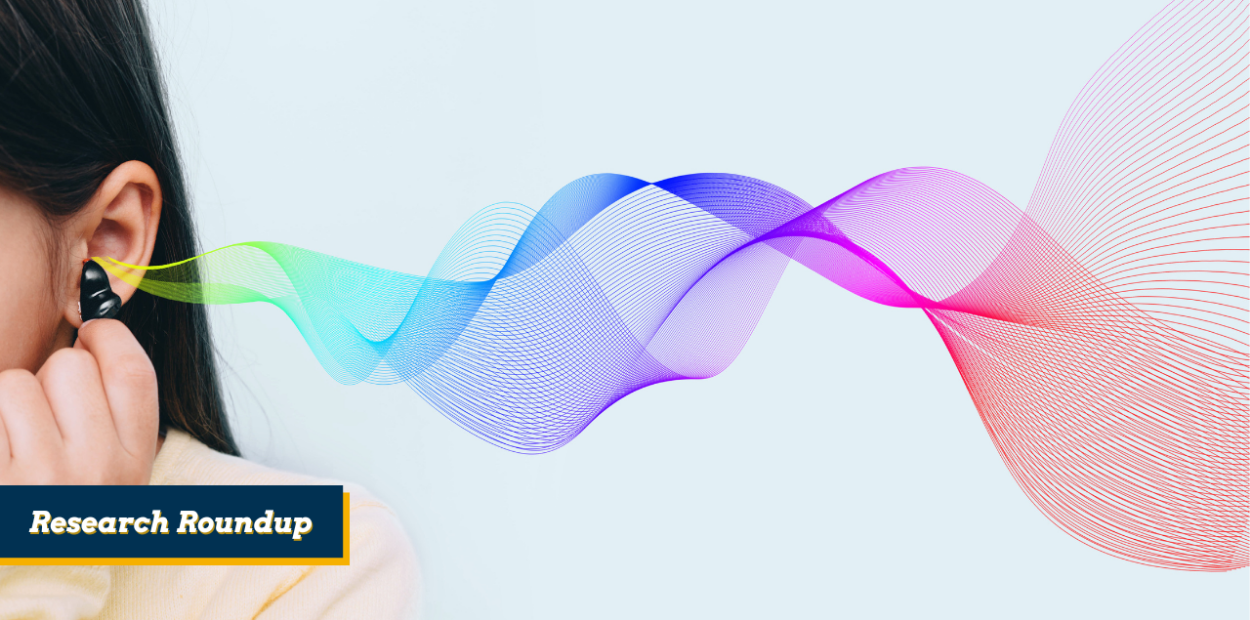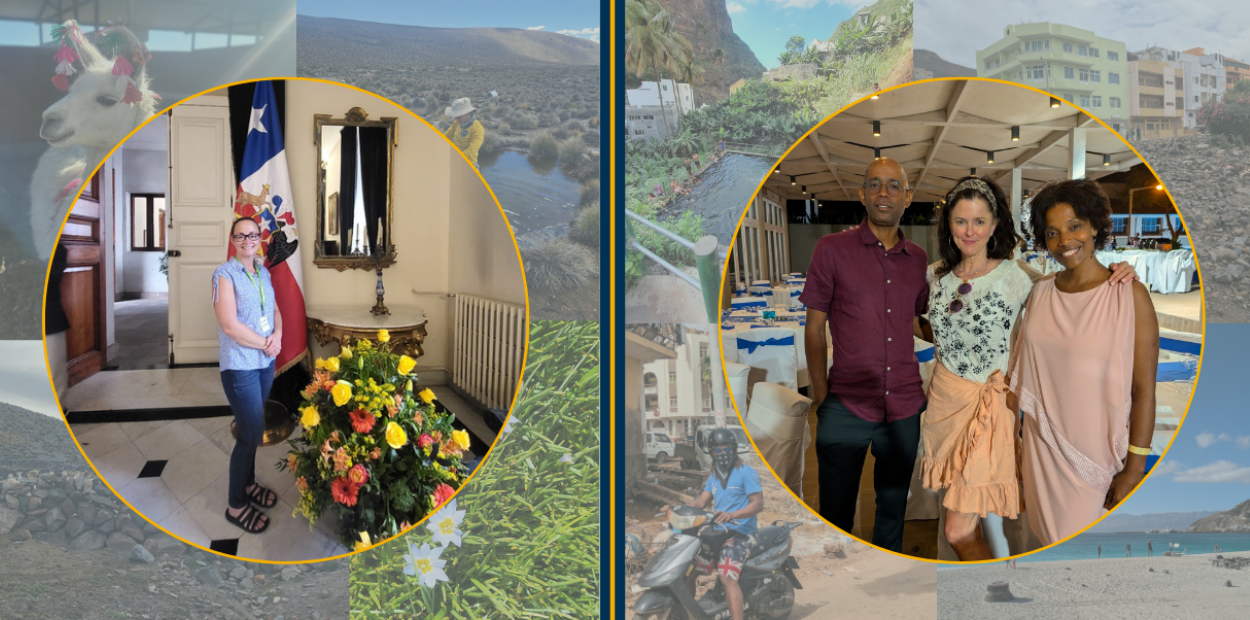
Article
September 22, 2022
Written by Deanna Herbert
New Chemistry Professor Sharing the Science of Solving Real World Problems
The lure of exploring endless possibilities and the challenge of solving puzzles is what drew Bonnie Buss to the field of chemistry. That combination is something she hopes will also inspire and excite her students, both in the classroom and the lab, as she steps into her new role as assistant professor in UNC’s Chemistry and Biochemistry department this fall.
The lure of exploring endless possibilities and the challenge of solving puzzles is what drew Bonnie Buss to the field of chemistry. That combination is something she hopes will also inspire and excite her students, both in the classroom and the lab, as she steps into her new role as assistant professor in UNC’s Chemistry and Biochemistry department this fall.
“We have the periodic table that’s relatively limited in the number of elements, but you can combine them and do things with them in an infinite number of ways,” Buss said. “It’s actually pretty easy to get into a lab and make something that nobody else has ever made, to be an inventor. Then there’s the puzzle side of it. You have all of these pieces of information, and you have to figure out how to solve a problem or determine what questions you can ask. Chemistry is not just about being smart, it’s about solving puzzles.”
Buss, who earned her bachelor’s in Chemistry from the University of Arkansas and a Ph.D. in Materials Chemistry from Colorado State University, has spent much of her career in the lab, most recently engaged in post-doctoral research at the National Renewable Energy Laboratory. Her research is focused on sustainability, applying her skills and knowledge to solving the very real-world puzzle of how to reduce plastic waste and pollution.
“The idea of sustainability is a pretty big focus in the academic chemistry community,” Buss said. “There’s a lot of government funding in this area and policy and motivation to solve these kinds of problems from all sorts of angles. My special take on this issue is being able to use light to either make plastics in a very sustainable way or to break down the plastics we already have into useful materials.”
According to Buss, while not completely unique, the research she’s doing does have the potential to stand out in the field.
“Relative to some academic groups, there’s definitely some economic motivation behind the research I’m doing,” Buss said. “We’re trying to develop things that make high value products. So, if we do come across a really solid approach, it’s something that people will have an economic incentive to adopt. There are a lot of ways to do everything out there, but if it’s really expensive, nobody’s going to do it.”
Buss is hoping to share her research with students and is actively recruiting both undergraduate and graduate students into her lab for hands-on research in photochemistry, plastics and sustainability. It’s something she thinks will appeal to all experience levels and disciplines, and she encourages interested students to contact her.
“The research we’ll do here is really fun since we’re using light to do all of the chemistry, everything is very colorful,” Buss continued.
“It’s a kind of research where we still use very fundamental ideas in chemistry, like talking about catalysts, things that can drive chemical reactions. But we’ll use these in a very real world and applied approach,” adds Buss. “This research is something that’s perfect for this environment, especially within the context of getting students excited and driving them to pursue careers in science, hopefully.”
Michael Mosher, interim department chair, professor of Chemistry and manager of UNC’s Brewing Laboratory Science Program, is excited to welcome Buss to the Department of Chemistry and Biochemistry and speaks highly of her research efforts to advance the science of polymer and plastic sustainability.
“The results of her studies will be of paramount importance to the students in our program as they explore potential careers in chemistry,” Mosher said.
While Buss is excited about her work in the lab, she’s equally excited about the classroom and looks forward to working with students closely as an instructor and a research advisor.
“Having people to teach and mentor – that’s what drew me back to academia, the idea that I can work with students, help guide them, and set them up for success whatever their future may be. I chose UNC in particular because of the emphasis on doing right by the student. It’s the combination of the teaching culture and the relatively smaller class sizes, while still getting the big university feel. I think it’s a pretty special place in that regard.”
Buss will be teaching general chemistry and organic chemistry this year She is one of seven new faculty members in UNC’s College of Natural and Health Sciences this fall. She is joined by Charles Lenell, Audiology and Speech Language Sciences; Lindsay Green, Nursing-Family/Emergency Nurse Practitioner; Teresa Buckner, Nutrition and Dietetics; Dannon Cox, Public Health-Community Health Education; Aryn Taylor, Rehabilitation Counseling and Sciences and Human Services; and Koo Yul Kim, Kinesiology-Sport Administration.



